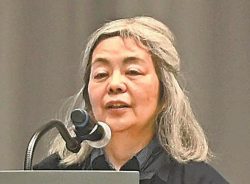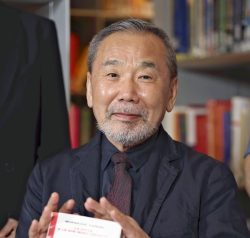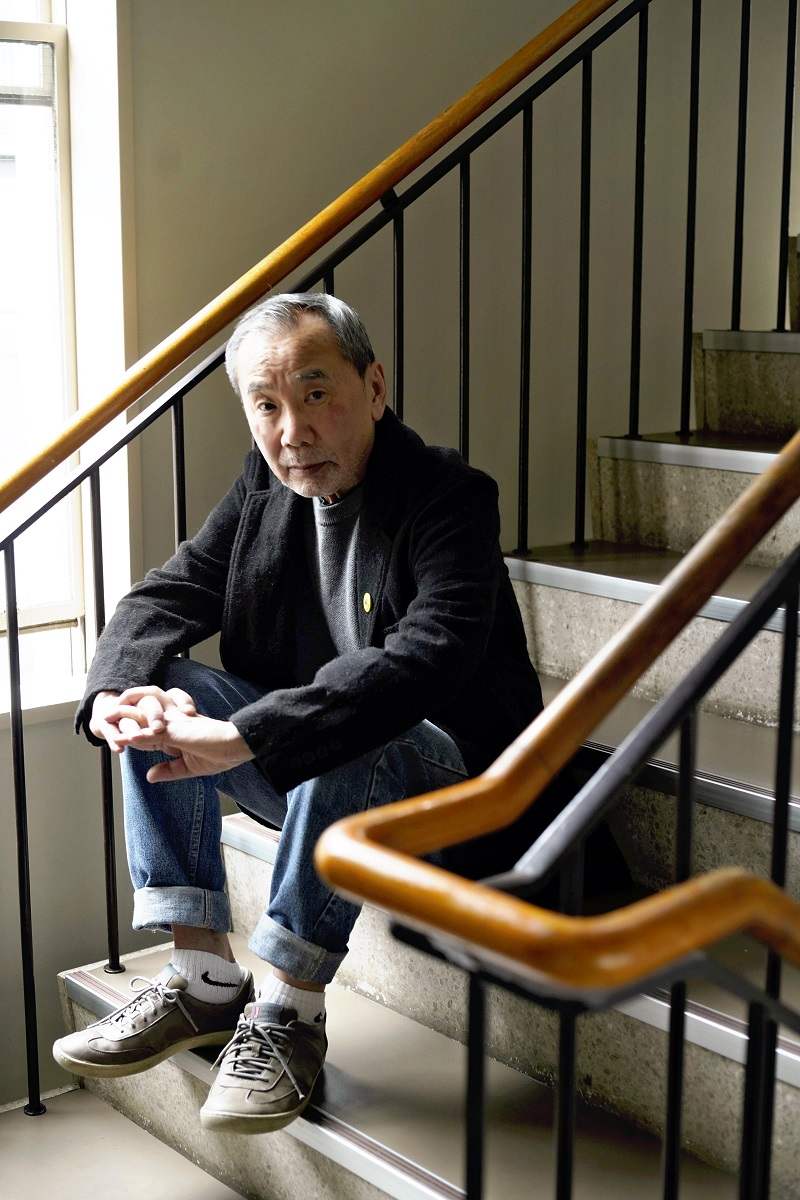
“When I finish a long novel, I hope that both the protagonist and I have grown up in some way,” said Haruki Murakami, whose new book was recently released in Japan.
11:00 JST, May 18, 2023
Last month saw the release in Japan of acclaimed author Haruki Murakami’s latest novel, “Machi to Sono Futashikana Kabe” (“The City and Its Uncertain Walls”), published by Shinchosha Publishing Co.
“Now that I’m getting old, I wonder how many more long novels I’ll be able to write. I wanted to put an end to [the thought],” Murakami told The Yomiuri Shimbun in an interview ahead of the release of his first novel in six years.
Early in the story, the protagonist is a third-year high school student dating a girl who reveals that her true self exists in a city surrounded by high walls. The novel is sprinkled with motifs that will be familiar to Murakami fans.
The story on which the latest novel is based has an almost identical title: “Machi to, Sono Futashikana Kabe.” The original story was published in the literary journal Bungakukai in 1980, appearing after Murakami’s 1979 debut “Hear the Wind Sing” and 1980’s “Pinball, 1973.”
However, the author said the early version of the story was “half-baked.”
The story was rewritten in Murakami’s 1985 bestseller “Hard-Boiled Wonderland and the End of the World,” which went on to win the Junichiro Tanizaki literary prize.
“I wrote [the original version of] Walls in 1980 during a watershed period in my career. Wind and Pinball were released. It was a period when writers like Mr. Kenzaburo Oe and Mr. Kenji Nakagami were seen as the mainstream in the ‘belletristic’ literary genre, and sometimes I was regarded as their counterpart,” said Murakami, 74.
“But I was just writing what I was able to write at the time. I didn’t have the ability to put what I had in my mind into words. The imperfection [in my writing] might have had some kind of appeal, but I was just putting things out there that surprisingly clicked well [with readers]. It went all right with the first two or three stories, but before long I started to think that I needed solid writing skills.”
Murakami, who ran a jazz cafe early in his career, subsequently handed over the shop and devoted himself to writing full-time.
He won the Noma literary prize for newcomers for his 1982 novel “A Wild Sheep Chase.” Next came “Hard-Boiled Wonderland and the End of the World” in 1985, but even after that he said he had a lingering thought he should’ve spent two more years on the novel.
Regarding the latest novel, the time was right for Murakami to write the story, which consists of three volumes.
The story takes place in two parallel worlds — inside and outside a walled city. The structure of the story is the same as that of “Hard-Boiled Wonderland and the End of the World” but the texture of the outside city differs from that of the inside world.
In the second volume of “The City and Its Uncertain Walls,” the protagonist, now 40 years old, can’t get his old flame out of his mind.
Unable to connect well with others, he quits his job and moves from Tokyo to Fukushima Prefecture. He starts working at a small library with a 70-something years old librarian and other staff and encounters a young boy.
Unlike some of Murakami’s past stories in which sensational things happen, this novel features gentle depictions of the encounters between the protagonist and people he meets in the town.
“When you’re young, you’re drawn to pop culture and action. A certain kind of pace, unexpectedness and lack of logic were also important. But now I’m part of the elderly demographic. In this story, people from three generations interact with each other. I wanted to sit down and write about the inner feelings of people through the eyes of others in various generations,” Murakami said.
Murakami spent nearly three years from 2020 writing the novel, during a period that coincided with the COVID-19 pandemic, when travel was restricted.
“I felt the course of history would change,” he said. “Until then, globalism was making progress, and we could see possibilities that the world was heading in a better direction. That ended with the pandemic, paving the way to populism and anti-globalism. And then the invasion of Ukraine happened.
“When the world becomes insecure, you may be tempted to run into a little world like the walled city in the novel. Is such a world good or bad? To me, writing a novel is about rediscovering myself in a deeper place, beyond the boundaries of consciousness and unconsciousness. The story’s ending was unknown to me and the characters until I’d finished writing it.”
In recent years, Murakami has been more visible than in the past. He started hosting a radio show, and in 2021, the Haruki Murakami Library opened on the campus of Waseda University, his alma mater.
From January to May this year, he’s speaking about female characters in his writing at the women’s university Wellesley College in the United States.
“I used to be eager to become a better writer, so I did nothing but write. I didn’t lecture or do media appearances. My life was about running, translating, living overseas and writing. But since turning 70, I’ve started to feel more comfortable, or more accepting of the fact that there’s no point in pushing myself to improve my writing,” Murakami said.
“I have no children, and I don’t work for a company, so I couldn’t really grasp the sense that I was getting older. And then suddenly I was told about the driver’s license course for the elderly, which caught me off guard.
“Sometimes I can’t quite believe that I write novels for a living. I had never thought about becoming a writer until I was 29, and all of a sudden, my books started to sell and were translated worldwide. It really is a mystery. I have a feeling I’m still running a jazz cafe in another world.”
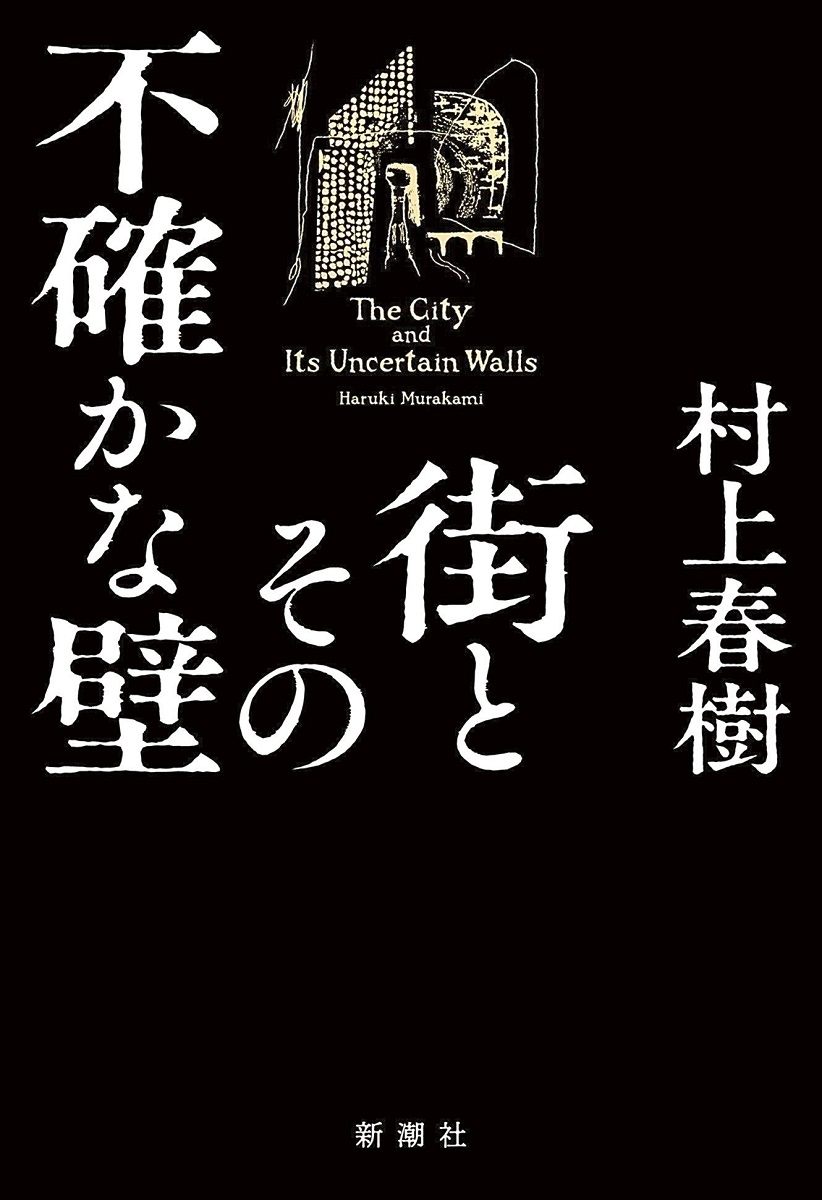
The cover of “Machi to Sono Futashikana Kabe” (“The City and Its Uncertain Walls”) by Haruki Murakami
Top Articles in Culture
-

BTS to Hold Comeback Concert in Seoul on March 21; Popular Boy Band Releases New Album to Signal Return
-

Director Naomi Kawase’s New Film Explores Heart Transplants in Japan, Production Involved Real Patients, Families
-
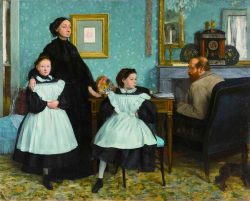
Tokyo Exhibition Offers Inside Look at Impressionism; 70 of 100 Works on ‘Interiors’ by Monet, Others on Loan from Paris
-
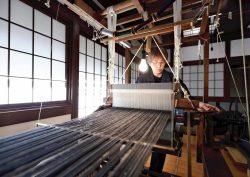
Traditional Japanese Silk Hakama Tradition Preserved by Sole Weaver in Sendai
-

Exhibition Featuring Yoshiharu Tsuge’s Manga World Underway in Chofu, Tokyo; Unique, Surreal Works Draw Steady Crowds
JN ACCESS RANKING
-

Producer Behind Pop Group XG Arrested for Cocaine Possession
-

Japan PM Takaichi’s Cabinet Resigns en Masse
-

Man Infected with Measles Reportedly Dined at Restaurant in Tokyo Station
-

Israeli Ambassador to Japan Speaks about Japan’s Role in the Reconstruction of Gaza
-

Videos Plagiarized, Reposted with False Subtitles Claiming ‘Ryukyu Belongs to China’; Anti-China False Information Also Posted in Japan




